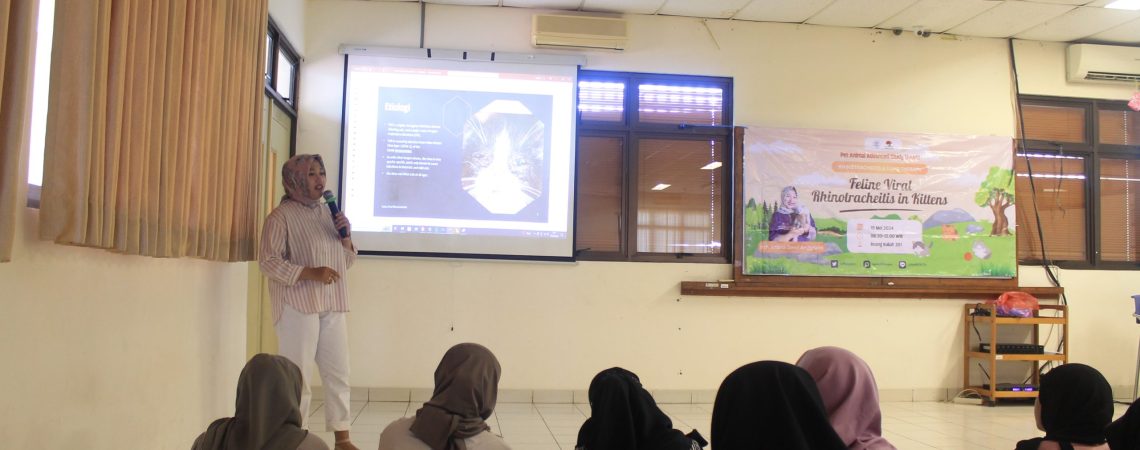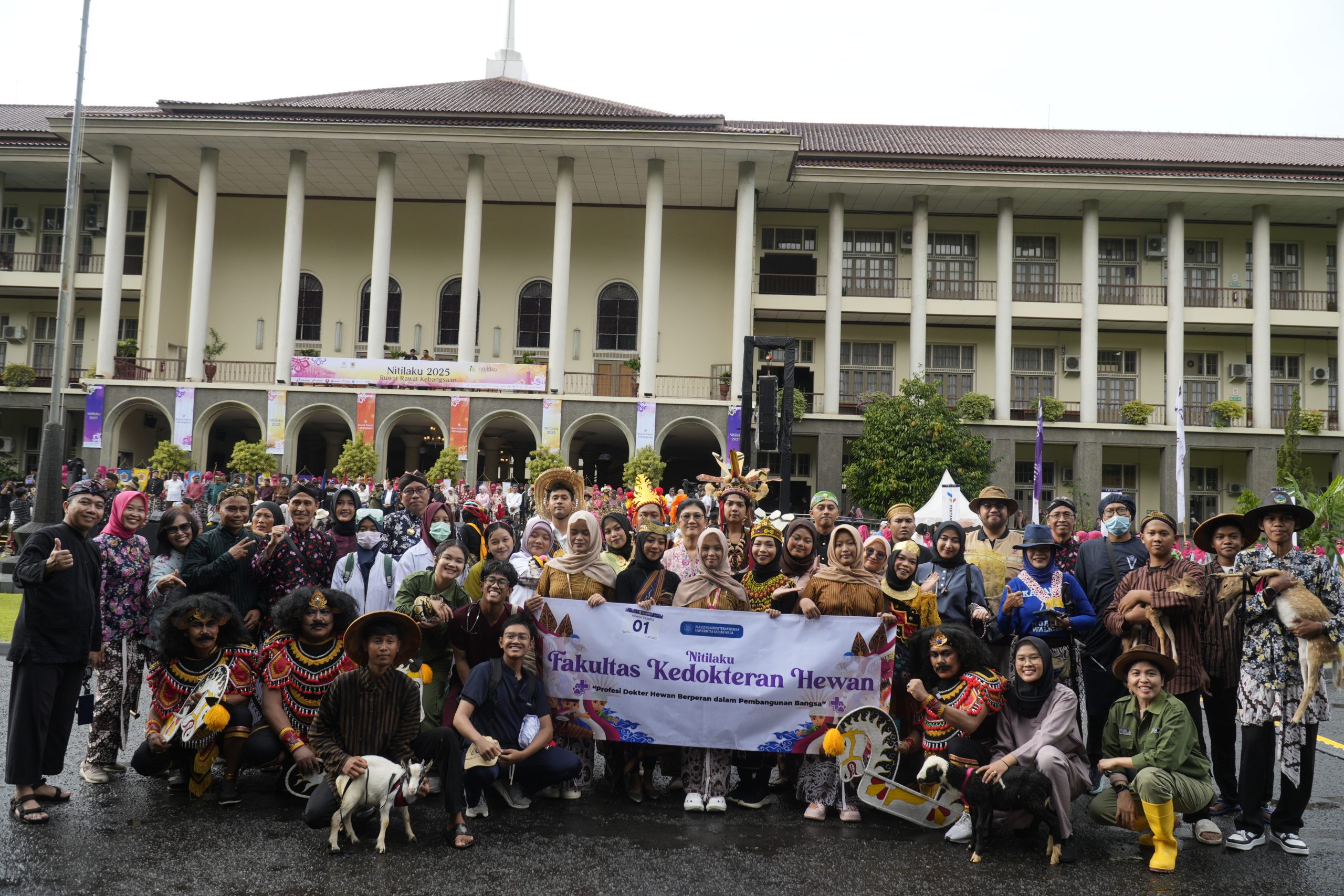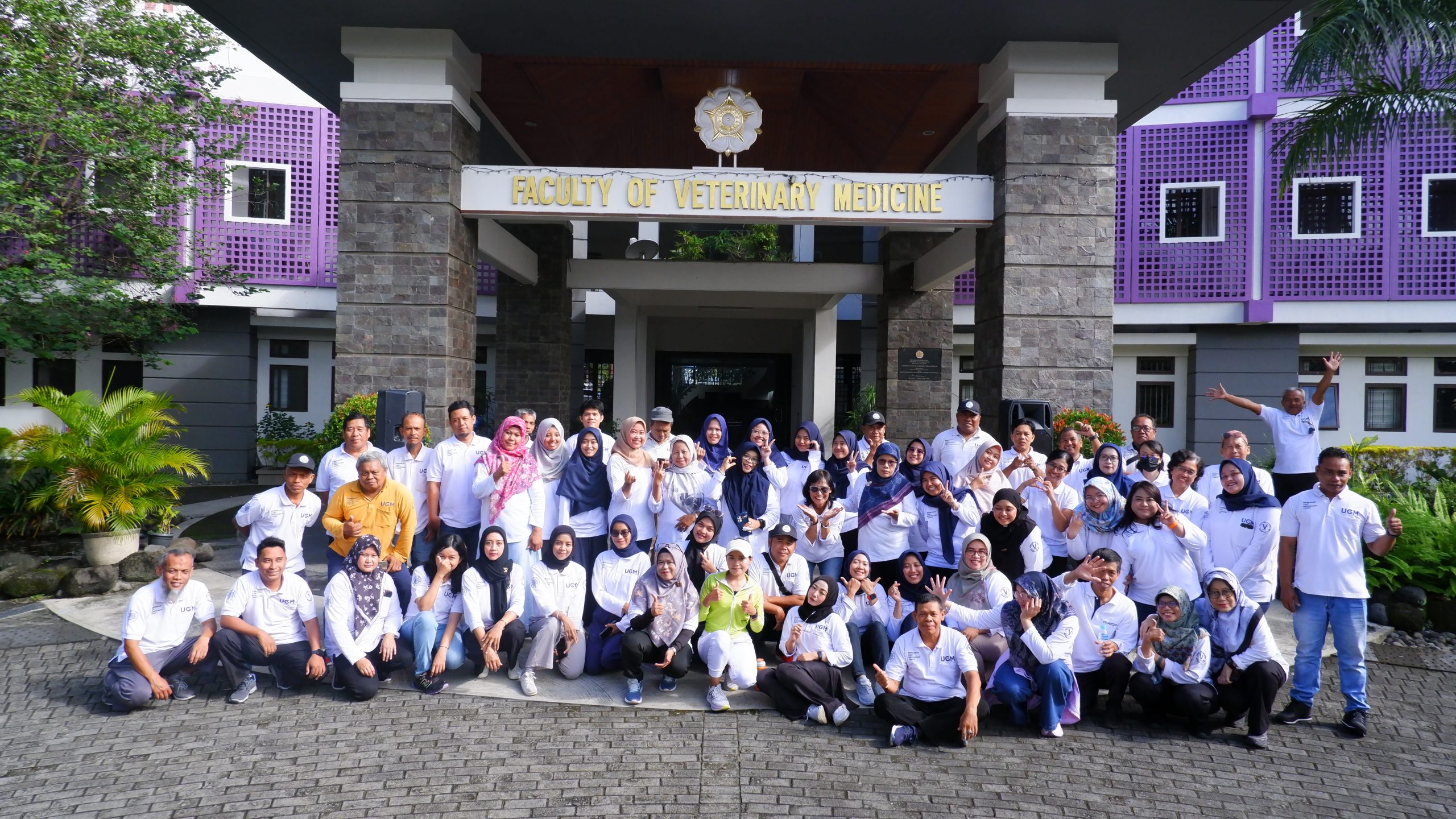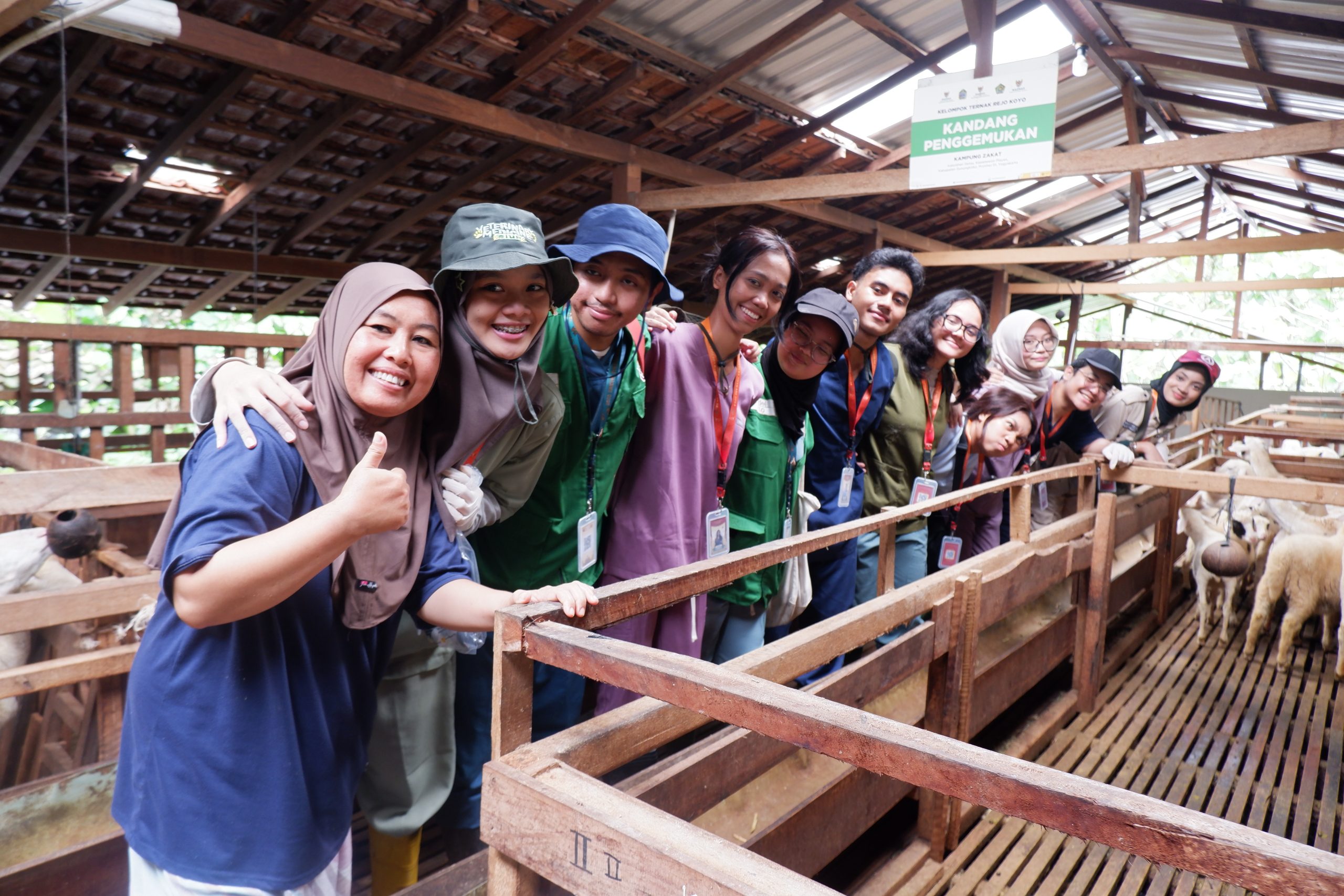On Sunday May 19th, 2024, a Pet Animal Advanced Study (PAAS) was carried out by the Department of Education, Kelompok Studi Hewan Kesayangan (KSHK) of the Faculty of Veterinary Medicine, Universitas Gadjah Mada with “Feline Viral Rhinotracheitis (FVP) and Fluid Therapy” as the topic. PAAS was carried out as a continuation of a series of activities, namely the Pet Animal Basic Study (PABS) and Pet Animal Intermediate Study (PAIS) which have been carried out in the previous year.
This year, PAAS was filled with a presentation about “Feline Viral Rhinotracheitis (FVP) and Fluid Therapy” by drh. Irfana Dewi Anggraini. After the session, question and answer session was held between the participants and the speaker. The three best questioners will get prizes that have been prepared by the committee. As a series, PAAS were also filled with practical examination sessions under the guidance of experienced trainers. Each trainer was divided into groups to provide explanations to participants from their respective groups regarding how to provide fluid therapy to pets affected by Feline Viral Rhinotracheitis (FVP), educate on how to handle and restrain properly during infusion insertion, and show how the examination practice is carried out directly (Hands On) to the cat that has been provided at the activity.
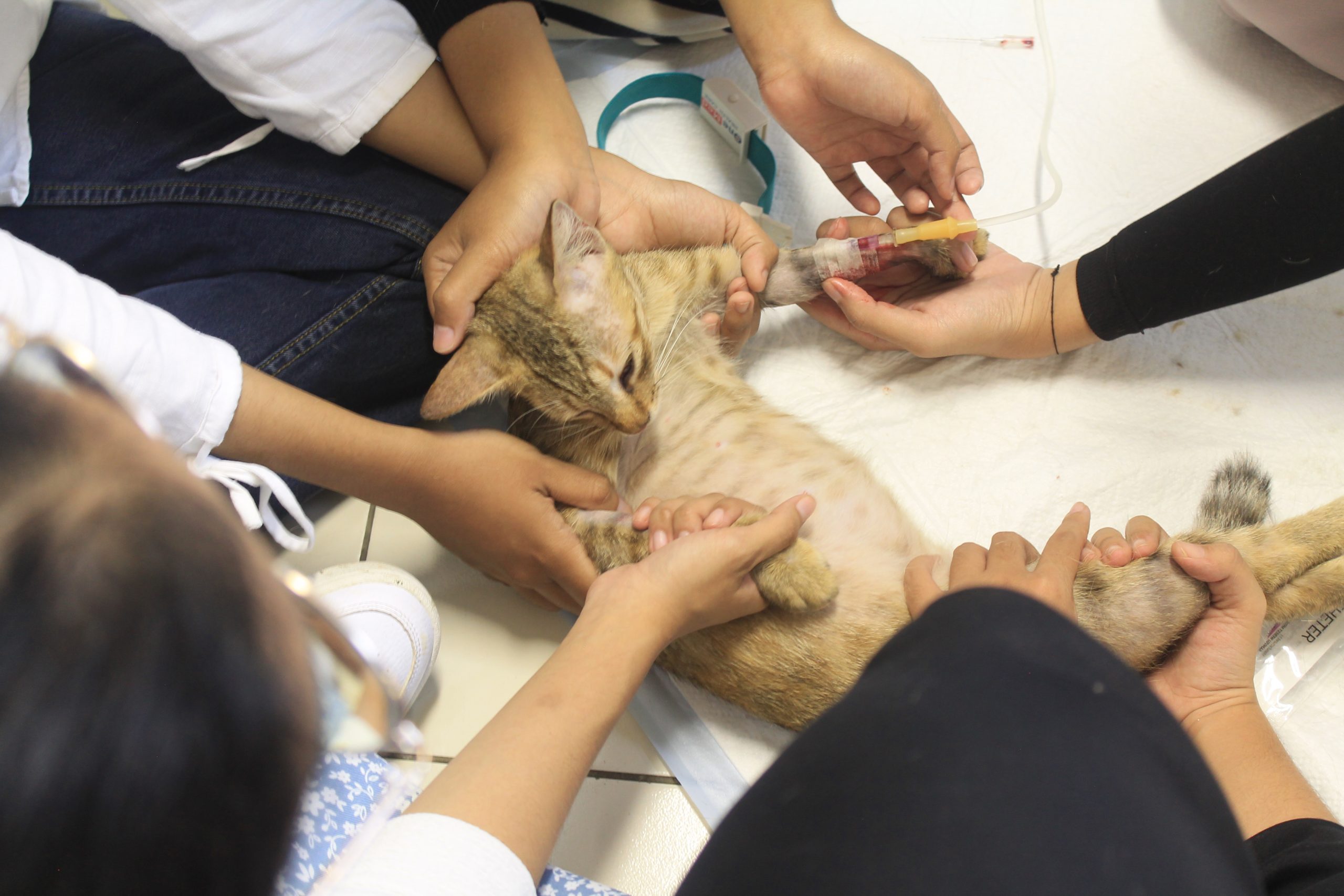
The benefits of this activities are helping KSHK members to explore cases of diseases that often occur in pets and improve soft skills in handling cases about fluid therapy. In addition, this activity is carried out as an effort to deepen knowledge and provide sustainable education about handling and restrain during treatment, physical examination, how to diagnose a case of disease, and various equipment needed when handling. The benefits not only be perceived by participants but also by the committee that prepared this event. Besides that, it can help us to practice cooperation and improve communication between committees. By holding the Pet Animal Advanced Study (PAAS), it is hoped that participants can understand and get useful benefits in the future as veterinarians.
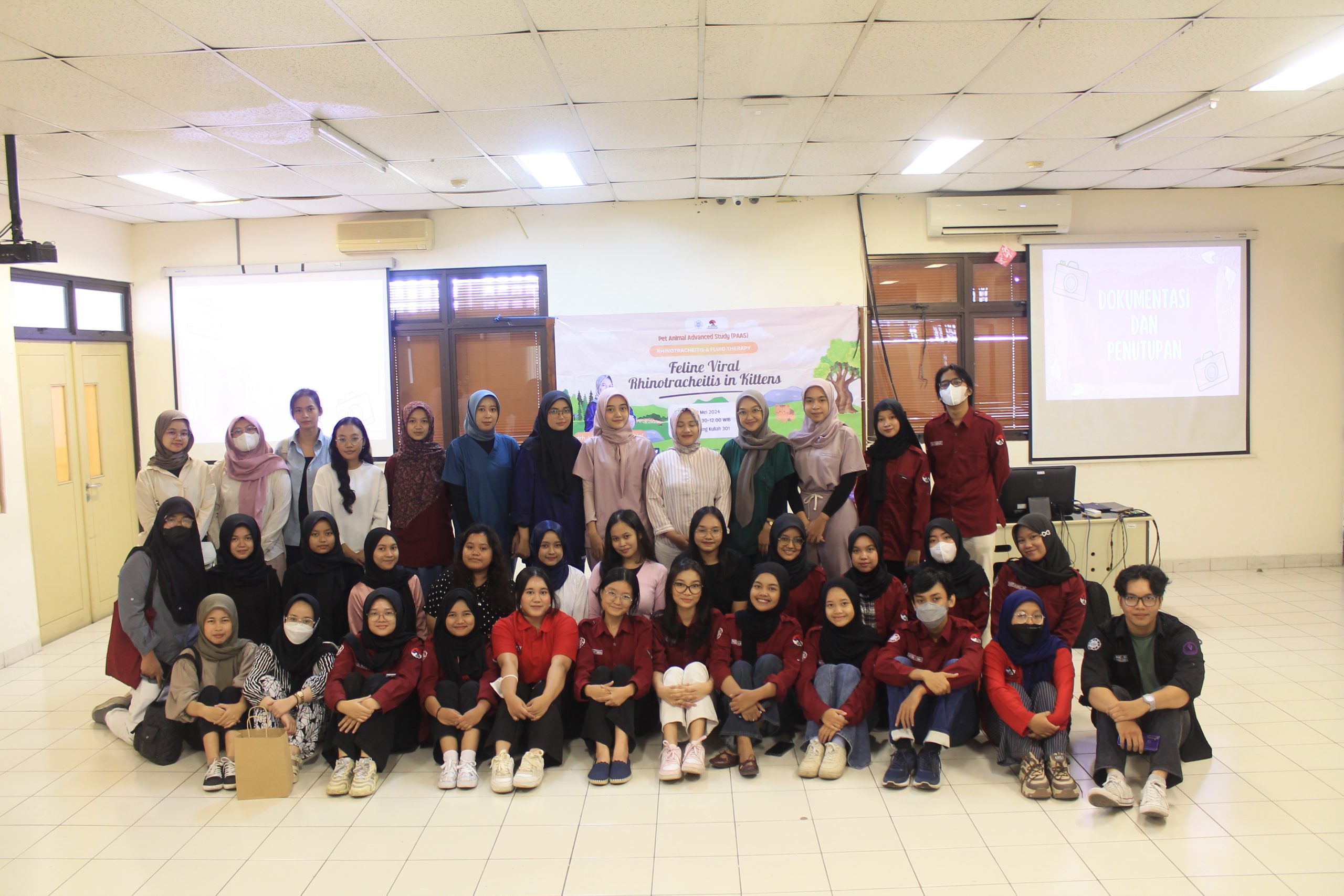
Contributor: Gayuh Bermana Wilasita

